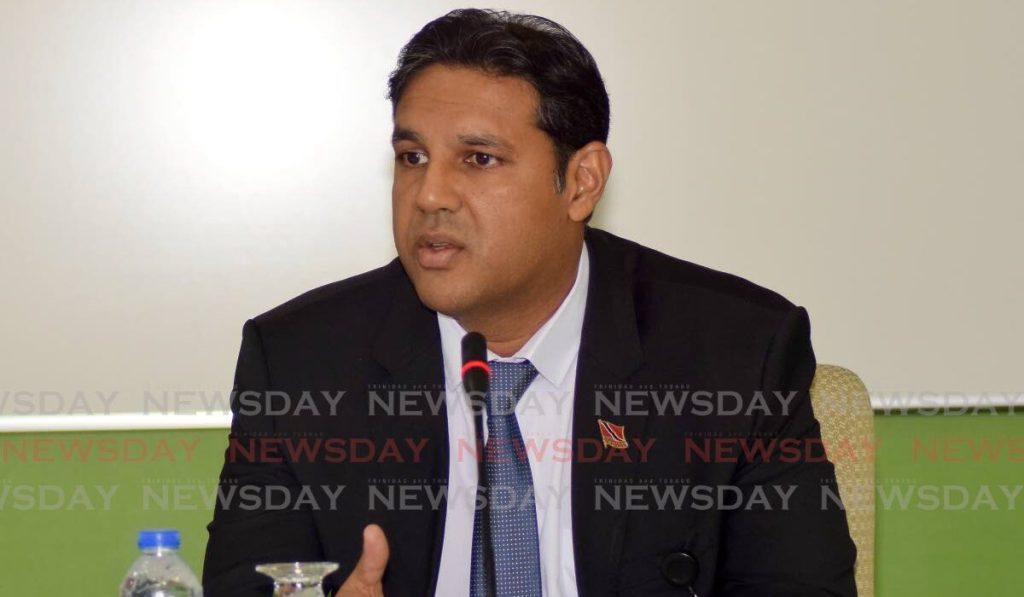Paula Lind
Chief medical officer Dr Roshan Parasuram said platelets should only be given to patients who are deemed to need them clinically.
Speaking at a press conference at the Ministry of Health in Queen’s Park East on July 19, Parasram said there were specific clinical indications for the use of platelets when it came to dengue.
There have been four dengue-related deaths and 392 laboratory-confirmed cases in 2024, the ministry said in a July 20 news release.
“Platelets are part of blood and a product produced from blood. Their clinical use needs to be guided by haematologists at the district health authority level. We have asked senior doctors to decide which patients really need platelets. We want to reserve them for patients who really need them,” Parasuram said.
“In layman’s terms, what we really need is patients with severe dengue, severe illness, very low platelet counts (without defining the threshold), who will continue to bleed. They need to be in a state of active bleeding, with very low platelet counts due to dengue.”
There are two mechanisms by which platelet count drops in dengue, he said.
“It inhibits the bone marrow from producing its own platelets, which is one of the reasons why thrombocytopenia occurs.
“The virus also destroys platelets in the blood, which is called thrombocytopenia. Adding more platelets in such a situation is not going to be of much use because in severe dengue, the additional platelets will likely also be destroyed.”
“This is reserved for specific clinical scenarios where a hematologist or senior physician will decide when it should be used.”
Health Minister Terence Deyalsingh said it was a misconception that all dengue patients needed platelets and blood.
“It’s unfortunate how the conversation is going. Not every patient needs blood or platelets.
“When I was admitted with dengue fever, I spent two nights in Port of Spain (General Hospital). My platelets went down but I recovered.
“Our country has the capacity to produce platelets.”
“But I have been asking the public for several years now to voluntarily donate blood and we don’t need to wait until a crisis occurs. The public tends to respond to emergencies. We are not acting proactively.”
He said he had requested the state to stop the chit system when the free voluntary blood donation scheme is launched on June 14, 2022.
“When someone is in crisis and already experiencing trauma, donate blood for free so they and their families don’t have to go through the extra stress of trying to get blood.”
Parasuram along with the Minister has appealed for more voluntary blood donations.
“We urge the public to continue to donate as much blood as they can to help improve the overall blood supply. Blood is a natural resource and the more blood we have, especially through voluntary means, the better off we are as a country in terms of supply.”
Parasuram said platelets are the blood component that enables blood to clot, while white blood cells are responsible for fighting infection. He said it is best to wait to administer platelets until the critical stage has passed, so that the platelets are not destroyed.
Authorities disputed the relatives’ claims about the platelet issue in a July 17 Newsday article titled “Actor Debe, who has dengue fever, needs platelets.”
Parasuram said the Ministry of Health had looked into the patient’s condition but declined to comment further as it was a private matter.


